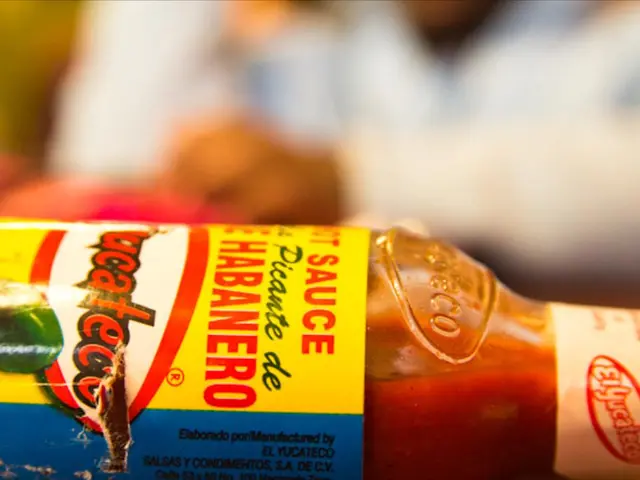Call for theWithdrawal of Non-health American Goods amid ongoing Disagreements
Canadian Shopping Trends: A Closer Look at Consumer Behavior
Quebecers show a strong affinity for locally-made products, with 36% of respondents boycotting American items in grocery stores, according to data collected by NielsenIQ. The firm presented these findings during a webinar to the Quebec Food Transformation Council last Thursday. The research was conducted over a 12-week period, before Donald Trump's tariff threats were imposed on Canada.
Canadian products have seen a growth of 4.4%, while American products experienced a decline of 4.1%. In fact, 30% of consumers said they would switch stores to favor one offering a prominent display of local products.
Healthy foods have made a comeback in Canadian and Quebec grocery stores, with protein-rich products being prominent choices for consumers. Over a third of Canadians (36%) are actively seeking protein-rich options, and Francis Parisien, Senior Vice President of Sales for SMEs in Canada at NielsenIQ believes this reflects a growing desire for healthier food choices.
Despite the focus on health, price remains a key factor for consumers. Francis Parisien points out that among cost-saving strategies, consumers often cut back on dining out and opt to cook at home instead. Furthermore, 65% of consumers tend to stock up when there are deals, making it the most common cost-cutting strategy.
Interestingly, private label brands are becoming more popular as consumers look for affordable options that meet their needs. However, brand loyalty is on the decline, with only about half of Canadian consumers remaining loyal to a specific brand. This trend is reflected in the way customers use the Amazon platform, where they define what they are looking for to find products, not specific brands.
Consumers in Quebec and rural areas also show a preference for weekly circulars, with more than seven out of ten consulting them, either online or in print. Retailers should note, however, that circulars may not be catering adequately to specific dietary preferences. Additionally, foods appearing on the first page of the circular are found to be more appealing to consumers, with 36% stating they are influenced by this selection and prefer when it features fewer products with larger discounts.
While ecommerce growth is on the rise, brick-and-mortar stores continue to be the dominant retail channel in Canada, with an impressive year-over-year increase in foot traffic. The emerging consumer market in Canada values convenience, affordability, health, and experience, leveraging both digital and traditional retail channels.
Sources:- SIAL Canada 2025 findings suggest that diverse demographic groups, particularly South Asian and Latin American consumers, prioritize plant-based dishes when purchasing meals or snacks.- Digital coupons have overtaken physical coupons, with consumers turning to social media channels to discover promotional offers and loyalty programs.- The majority of Canadians still prefer in-store shopping for tactile product evaluation, but also embrace digital deal-finding and purchasing.- Gen Z and Millennials are key drivers of digital and experiential consumption.
- Quebecers, with their inclination towards locally-made items, have shown a preference for French products, notably in the food-and-drink and home-and-garden sectors, as evidenced by the 36% of respondents opting for locally sourced goods over American alternatives.
- Within the realm of personal-finance, price continues to be a significant influencing factor for consumers, with 65% of Canadians adopting the strategy of stocking up on items when deals become available as a means of cost-saving.
- In the shopping landscape, both brick-and-mortar stores and e-commerce platforms are valued by consumers for different reasons. The former is appreciated for its tactile evaluation experience, while the latter is utilized for discovering promotional offers and loyalty programs, reflecting the emerging consumer market's desire for convenience and unique experiences.








